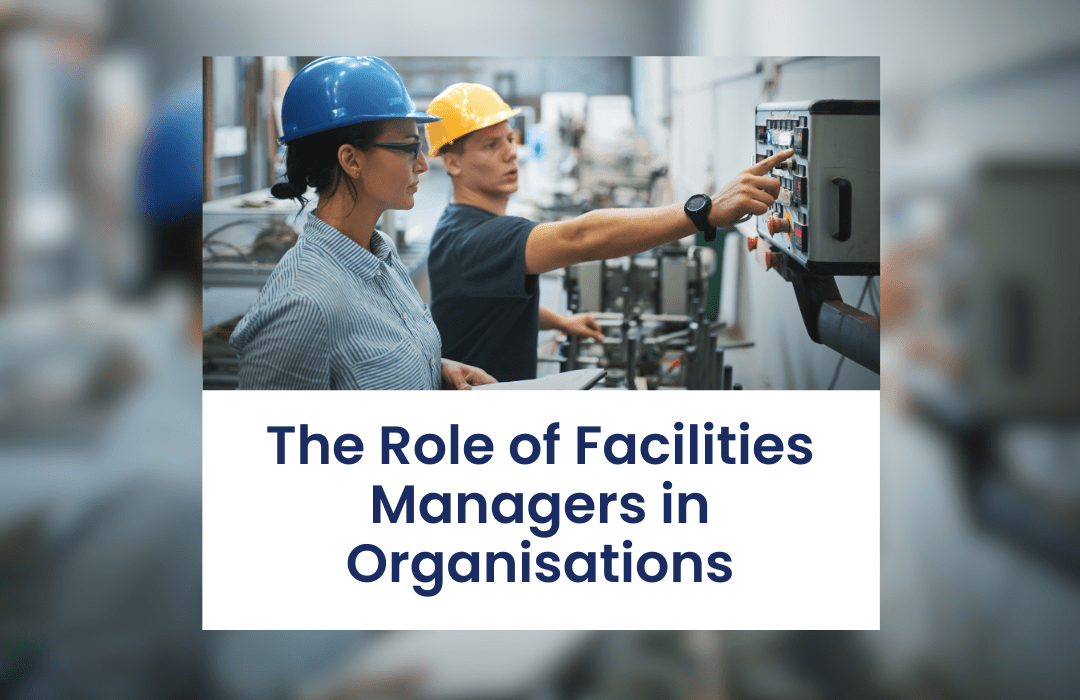The Role of Facilities Managers in Organisations
30 Aug, 20248 MinutesThe Growing Importance of Facilities Management Facilities management is essential for ...

The Growing Importance of Facilities Management
Facilities management is essential for modern organisations, keeping operations smooth and efficient.
As buildings and work environments become more complex, the role of a facilities manager has grown.
They strategically manage space, resources, and services, impacting daily operations and long-term success.
What Does a Facilities Manager Do?
Facilities managers have key operational and strategic duties that are vital:
- Managing the maintenance and repair of facilities, equipment, and systems.
- Overseeing the facility's security and ensuring compliance with health and safety regulations.
- Develop and put in place strategies to reduce downtime and costs.
- Managing vendor relationships and contracts.
- Planning and managing facilities budgets.
- Collaborating with other property services departments to optimise space and resource use.
Facilities managers need leadership, problem-solving, communication skills, and a grasp of best practices.
How to Ensure Operational Efficiency
Facilities managers focus on a few key areas for operational efficiency:
- Space Utilisation: Improve workflow by analysing the use of space.
- Energy Efficiency: They reduce energy use by implementing efficient systems and promoting sustainability.
- User Feedback: Gather feedback from facility users to spot issues and fix bottlenecks.
These actions boost an organisation's productivity and performance.
Maintaining Health and Safety Standards in Facilities Management
Maintaining health and safety standards is a top priority in Facilities Management. Facility managers ensure the well-being of employees, visitors and the public by:
- Enforcing regulations, such as health and safety rules.
- Conducting risk assessment and developing emergency response plans.
- Overseeing maintenance, fire safety, and building code compliance.
Facilities managers create a safe and secure environment for everyone by managing these areas.
Sustainability in Facilities Management
Sustainability is a key focus for organisations. Facilities managers play a crucial role in driving eco-friendly practices.
They are responsible for reducing energy consumption, minimising waste, promoting renewable resources, implementing green practices like LEED certification, and integrating energy-efficient technology.
Prioritising sustainability enhances reputation, saves money, and supports social responsibility.
Vendor and Contract Management
Vendor and contract management are key parts of Facilities Management. It involves choosing and overseeing external vendors for facility services.
Facilities managers handle vendor selection, negotiate contracts, and manage agreements. They deliver services on time and within budget.
They set up service-level agreements, track vendor performance, and resolve issues.
Effective vendor and contract management maintains service quality, controls costs, and builds strong vendor relationships.
Cost Management and Budgeting
Cost management and budgeting are crucial for facilities managers. They handle budgets, ensure cost efficiency, and use resources best.
As a facility manager, you must analyse costs, create budgets, and find ways to save money while maintaining quality.
Technology and Future Trends in Facilities Management
Technology has changed how facilities management works. Facility managers use smart tech, software, and data to improve efficiency through actions such as checking energy use, maintaining equipment and controlling building systems remotely.
The field is growing with new tech trends. Future trends include IoT (Internet of Things) for real-time monitoring and AI (Artificial Intelligence) for improved maintenance and efficiency, and facility managers need to stay current with these trends and adapt their strategies.



